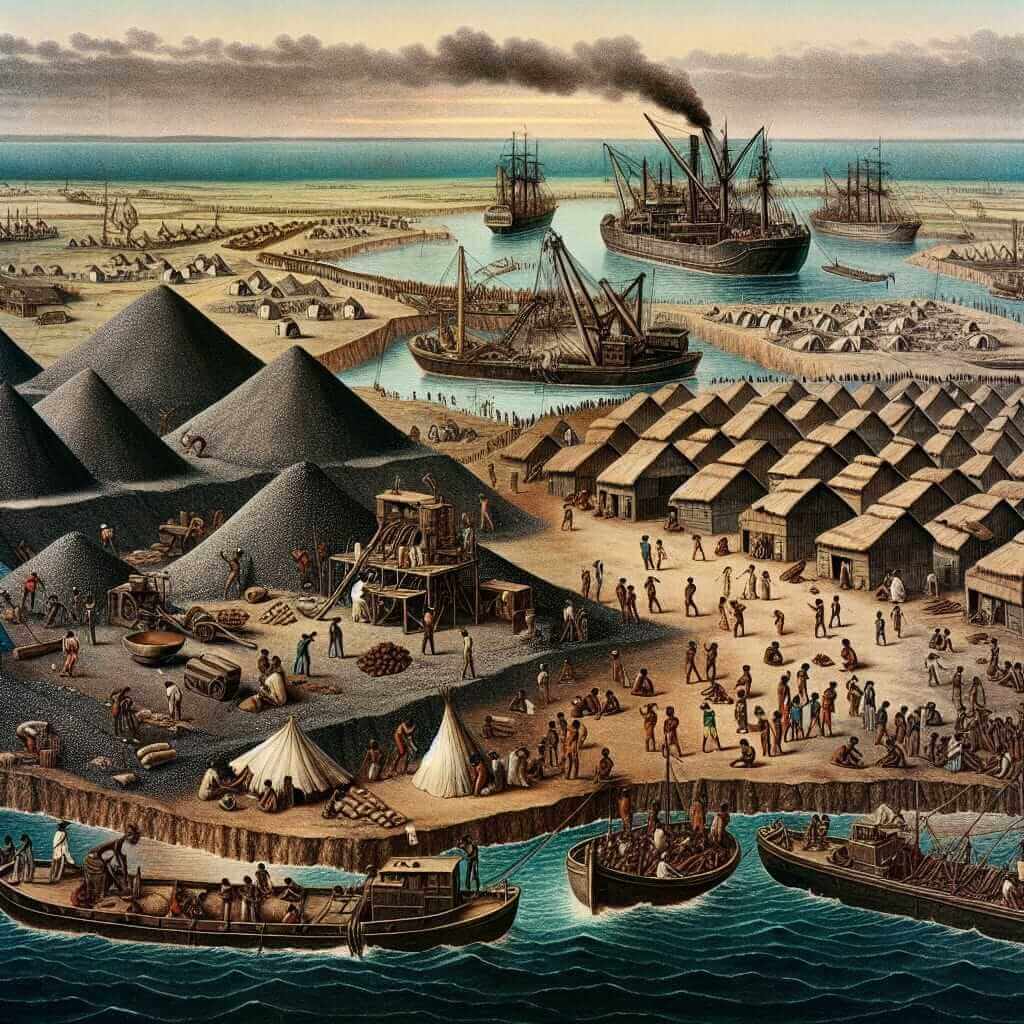The IELTS Reading section comprises various question types testing a wide range of skills. Analyzing the impact of colonial history on modern societies is a thorough theme that often appears. This is due to its historical significance and long-lasting effects, evident in multiple facets of today’s world. Given the enduring relevance, this topic is likely to reappear in future IELTS exams.
Full IELTS Reading Practice Test: Historical Analysis of Colonial Impacts on Modern Societies
Reading Passage
The Colonization Era’s Legacy
Colonization, which spread across different parts of the world from the 15th to 20th centuries, has profoundly influenced modern societies. The colonial legacy is evident in various aspects, including economic structures, social hierarchies, and cultural exchanges. This historical process is instrumental in shaping modern geopolitical landscapes and socio-economic frameworks.
Economic structures in many formerly colonized countries are still reflective of colonial extraction economies. These economies were initially designed to serve the interests of the colonizers, often focusing on the extraction and export of raw materials. Even after gaining independence, many nations continue to struggle with economic diversification.

Social hierarchies introduced during the colonial period persist in some regions, influencing class structures and societal roles. For instance, the caste system in India, although historically older than colonialism, was significantly reinforced under British rule. The social stratification systems imposed or exacerbated by colonial powers linger, affecting access to resources and opportunities.
Additionally, cultural exchanges during colonization led to a blend of indigenous and Western cultures. While this amalgamation has enriched cultures in certain contexts, it has also led to cultural erosion and loss of indigenous traditions and languages. The process of ‘Westernization’ often overshadowed local customs, creating a cultural hegemony that persists to this day.
In summary, colonialism’s imprint on modern societies is undeniable, influencing economic, social, and cultural domains. Understanding this impact provides critical insights into current global dynamics and historical contexts underlying contemporary issues.
Questions
Identifying Information (True/False/Not Given)
- Many formerly colonized economies were initially designed to focus exclusively on industrialization.
- The caste system in India was significantly influenced by British colonial rule.
- Colonial powers commonly introduced new religions that completely eliminated local faiths.
Multiple Choice
-
What is a significant factor in the economic struggles of many formerly colonized countries?
- A) Lack of natural resources
- B) Infrastructural development
- C) Economic diversification
- D) Political instability
-
The term ‘Westernization’ in the context of colonial impacts refers to:
- A) Complete eradication of indigenous cultures
- B) Integration and blending of Western and local cultures
- C) Preservation of local traditions with minimal Western influence
- D) Rapid development of Western technological advancements
Matching Features
Match each feature with the corresponding aspect of colonial impact:
A) Economic Structures
B) Social Hierarchies
C) Cultural Exchanges
- The persistence of class systems
- The continuation of extraction-based economies
- The hybridization of local and Western cultures
Answer Keys and Explanations
-
False. The passage states that the economies were primarily designed for the extraction and export of raw materials, not exclusively on industrialization.
-
True. The text mentions that the caste system in India was significantly reinforced during the British colonial period.
-
Not Given. There is no information provided about the complete elimination of local faiths due to the introduction of new religions by colonial powers.
-
C) Economic diversification. The passage clearly states that many nations struggle with economic diversification after gaining independence.
-
B) Integration and blending of Western and local cultures. The term ‘Westernization’ in the passage is elaborated as a blend of indigenous and Western cultures.
-
B) Social Hierarchies. Social hierarchies like the caste system in India were reinforced during colonial rule.
-
A) Economic Structures. The continuation of extraction-based economies is mentioned as a colonial legacy.
-
C) Cultural Exchanges. The hybridization of cultures is discussed as an outcome of colonial cultural exchanges.
Common Errors
- Misinterpreting the historical context can lead to incorrect answers. Understanding the nuanced impacts of colonialism is crucial.
- Overlooking key words in the passage like “economies based on extraction” could result in mistakes.
Vocabulary
- Extraction (n.) /ɪkˈstræk.ʃən/: The process of removing or obtaining something from something else; in this context, natural resources.
- Legacy (n.) /ˈlɛɡ.ə.si/: Something that is left behind and handed down from previous generations.
- Stratification (n.) /ˌstræt.ɪ.fɪˈkeɪ.ʃən/: The division or arrangement of something into different groups or layers.
Grammar Point
- Passive Voice: Used to emphasize the action rather than who performs the action.
- Example: “Economic structures were designed to serve the interests of the colonizers.”
- Formula: Subject + auxiliary verb (form of “to be”) + past participle.
Conclusion
To excel in the IELTS Reading section, it’s vital to develop a deep understanding of the passage topic and types of questions. Practice regularly, focus on both vocabulary and comprehension skills, and analyze past mistakes to avoid them in future attempts. Your commitment and strategic preparation will lead you to a high band score.